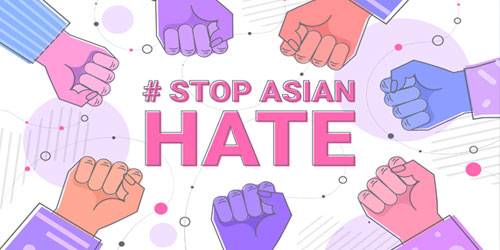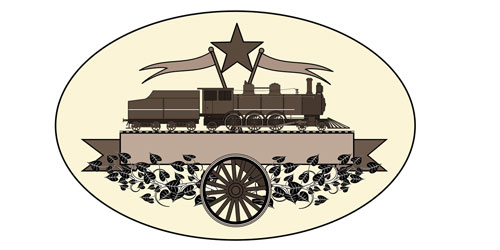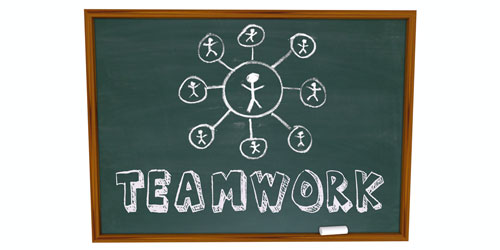Hon. Ronald S.W. Lew: First Chinese American Federal Judge in the continental United States
Ronald S.W. Lew, born in Los Angeles in 1941, used to serve as the judge of the U.S. District Court of the Central District of California and the first Chinese American federal judge outside of the State of Hawaii.
Law graduated from Loyola Marymount University in 1964 and received a Juris Doctor from Southwestern University School of Law in 1971. Governor Jerry Brown appointed Lew to Judge of the Los Angeles Municipal Court in 1982. Governor George Deukmejian appointed Lew to Judge of the Los Angeles Superior Court in 1984. President Ronald Reagan nominated Lew to a seat on the U.S. District Court in 1987.
On August 18, 2022 we finally met with Honorable Ronald S.W. Lew and his wife Mamie Lew, after several months of coordination for this meeting. Judge Lew was radiant, brilliant, quick-witted, and precise in his conversation, all without losing humor. The wonderful life story of Judge Lew unfolded in our conversation. His story once again gives us a glimpse into the historical trajectory of Chinese Americans spanning two generations, and what factors made Ronald S.W. Lew, the first Chinese federal judge in the United States.
 Judge Ronald S.W. Lew
Judge Ronald S.W. Lew
Father's Influence
Much of Lew's early life was heavily influenced by his father, Shitian Lew, who immigrated to the United States from Taishan, Guangdong Province of China in 1920. During that time, the Chinese immigrants suffered from racial discrimination and were not given the chance to become American citizen. Lew's father then returned to China and got married. With the exclusion act loosened, the couple later returned to the United States with their son (Lew's oldest brother) and settled in Los Angeles.
The Chinese immigrants could only engage in low-income business. To survive and provide for the family, Lew’s father opened a small laundry store in Los Angeles to keep ends meet. Lew, the third of nine children of the Lew family, were born here. He was born in the back room of his father's laundry store, southwest of the Coliseum on St. Andrews Place and what was then Santa Barbara Avenue, now Martin Luther King Boulevard.
According to Lew, the laundry store was tiny in the beginning and gradually expanded later to make enough money to make a living. When he was a child, he had to work at the store along with his brothers and sisters to support the family.
Lew recalls the backyard was the Coliseum and the children played in Exposition Park. He remembers parking cars on the front lawn for a dollar, as many Coliseum neighbors still do (the going rate is now $5 or $10) and then taking the dollar to the Coliseum to watch the Trojans playing football.
He attended West Vernon Elementary School and John Adams Junior High School on Broadway and 28th. His father then made a decision that according to Lew, affected the entire course of his life. He took all of his kids out of public schools and put them into parochial schools. Lew went to Loyola High School which turned out to be the alma mater for an amazing number of judges in the Los Angeles area.
Lew's mother did not speak English, but his father spoke a little, and he was active in the Chinese American community. Expatriate Chinese community in Los Angeles at that time, as in most cities around the world, was policed and governed not by the local authorities but by the Chinese themselves through organizations like the Six Companies and various family and village associations.
Similar organizations provided self-government for the Irish, the Jews, the Italians, but in no community was the separation as complete as with the Chinese, both because of racial prejudice on the part of Americans and a long history of self-sufficiency on the part of the newcomers.
But Lew says his father, and a few other like-minded leaders, saw that the era of the insular Chinatown could not last forever. They understood that Chinese immigrants and their children had to become local citizens, had to learn English and vote, and had to rely on U.S. courts, police, and civic leaders. The American-born Chinese, instead of becoming leaders of simply the benevolent associations or the Six Companies, also had to become lawyers and teachers and doctors.
 A young Ronald Lew is seen with parentsand siblings.
A young Ronald Lew is seen with parentsand siblings.
Rising Star in Legal Field
Lew's father decided that Lew would go into law. Law would be the vehicle for integrating the Chinese community into the American system, and his son would be one of the people who would open the door between the two systems.
Lew felt lucky to have a visionary father who encouraged him to walk out of the small family business and take a different career route. His father had high hopes for all his children, given all he had to transfer them from public school to expensive private school with a hope that they would shine in professional fields as scientists, doctors, and lawyers. The family was attending a local Catholic church, and one of the parishioners was the chair of the political science department at Loyola University. Lew supposes that his parents talked to him, and together the three adults perhaps plotted a strategy for Lew's life and career. At his father’s request, Lew was enrolled at a law school following his brother who entered the well-known Caltech.
Initially, Lew had no passion for law. But his father insisted that he pursued a career in legal field. Chinese parents asked their children to study law because they used to handle their own issue themselves and stay inside their own circles such as Chinatown. After Lew realized the importance of law and at the wish of his parents, he accepted such an arrangement.
It was the mid-1960s and Lew's draft number came up. With the Vietnam war at its height, he believed a deferment was less than certain, so he went to the enlistment office. They offered him officer candidate school, and he was assigned to Oakland Army Base.
On leave one Christmas, he met a young lady he had heard about, but missed, at his older brother's wedding. She was his new sister-in-law's niece from Texas, and it soon became clear she was to become the future Mamie Lew.
 Lew served in the U.S. Army from 1967-1969
Lew served in the U.S. Army from 1967-1969
Breaking Ice and Practicing Law
Lew studies at Southwestern University School of Law after he graduated from Loyola Marymount University in 1964 and received a Juris Doctor in 1971. After Lew completed his law degree and immediately found himself at somewhat of a loss. His family's plan for him was, more or less, complete. His parents knew little of what lawyers actually did, and law schools did not have placement offices at the time. What to do now? Lew went back to work at the laundry. Eventually his father could not take it anymore and told him, “You are fired. Go find a decent job. You are a lawyer.” Lew subsequently opened a yellow book looking for all telephone numbers related to legal affairs. And he contacted the city attorney’s office of Los Angeles and became an attorney after interview.
Father’s firing of him made Lew a rising star in the legal field. When he entered the city hall, there were not many Chinese employees. His familiarity with the communities and his dedication to the job rapidly made him stand out. In 1982, Governor Jerry Brown appointed Lew the judge of Los Angeles Municipal Court. Two years later he served as a judge of Los Angeles Superior Court.
At that time Lew faced a critical choice in his life. He might continue to serve within the state court system, and maybe to become a justice at the Supreme Court of California. However, his friends and the local Chinese community expected him to pursue a position at federal court. This was obviously an adventure for him since no one had succeeded prior to him.
As Judge Lew mentioned, a candidate of federal judge faced tougher competitions. The decision was not up to the President. The President’s nomination had to be confirmed by the Senate and this process was not easy. A number of candidates vied for such a position.
According to Judge Lew, it was a political process to select a federal judge. The Chinese Americans, as a minority, did not have enough resources and influences and was especially challenging to do so, for there was thick ice to break.
But hard work paid off. In 1987, Judge Lew was nominated by President Reagan to be a judge of the U.S. District Court of the Central District of California, which made him the first Chinese American in the continental America to take such a position.

Lew's office is filled with "stuff."
Mindful of His Root
Much of Judge Lew's hard work went toward establishing community organizations. In the early 1970s, the era of the insular and self-governing Chinese community was coming to an end. True to his parents' vision, Judge Lew played a key role in assuring as smooth a transition as possible into American life.
Before the 1970s, Lew says, a Chinese person was seldom seen in court, behind or in front of the desk at any governmental agency. But with the immigrant population burgeoning and the American-born generations less and less likely to voluntarily hold itself apart from American culture, things had to change.
For Judge Lew, the position of the federal judge was the embodiment of justice, the credit for serving the public, and the choice of the responsibilities and mission. He said it was both an honor and a huge challenge to serve as a federal judge.
According to Lew, the goal of a successful lawyer was to become a judge. Only the most successful ones could be federal judges. The reason he chose to face challenges to serve in a federal court was that it represented the success of the Chinese Americans, and this was a firm stance for Judge Lew.
In 1997, a Mexican gang-related case shocked the nation. The trial lasted half a year resulting in the life sentence of several notorious gang leaders. The impartiality and efficiency which Judge Lew had demonstrated during the trial was recognized by the media, and the prosecuting and defending teams.
Judge Lew gained respect with his efforts. However, he did not treat his success as his personal matter. In 2000, Lew was appointed as a member of the Foreign Affairs Committee of Judicial Conference of the United States, and subsequently led a group of four federal judges to visit China, introducing American jury proceedings to the Chinese counterparts. Judge Lew was passionate about public service.
Judge Lew helped organize the Chinatown Service Center, a non-profit organization set up to assist people to find jobs and housing. The Six Companies and the Consolidated Chinese Benevolent Associations retained their presence, but the new institutions assured that Chinese immigrants would get their share of federal and state dollars and take their part in their new country. It took a lawyer with experience in the public sector, but with a healthy respect and understanding of the old ways to pierce what Judge Lew calls "the Chinese mentality" of keeping things in the community.
One of the best examples of Judge Lew's knack for balancing easygoing humor and a desire to keep the process moving may come from outside the courtroom. It was 1995, and Lew, one of the prime movers behind getting a Chinese museum opened in the Plaza area near Olvera Street, where Chinatown used to be, was impatient with a city commission's slow pace in securing funding to get the building refurbished. In 2001, Lew was awarded the History Makers Award by the Los Angeles Chinese American Museum in law and justice. He was also honored by the Chinese Historical Society of Southern California (CHSSC) as one of the Chinese American Pioneers in Law in 2005.
As in the law profession, Judge Lew was the first president of Southern California Chinese Lawyers Association, bringing his colleagues together to offer each other advice and encouragement. They also went to encouraging college students to give law a try, echoing the "encouragement" that Lew got from his parents, and no doubt many of the other young lawyers got from theirs.
Despite his professional success as the first Chinese American federal judge in the continental United States, Judge Lew never forgot his Chinese legacy and root. In 1979 and 1990, he traveled twice to his father’s hometown in Taishan, Guangdong Province of China, to pay respect to his ancestors.
According to Judge Lew, his family has still maintained many Chinese traditions and customs, reminding his children of their Chinese root. It was necessary to have a museum dedicated to the Chinese Americans as a reminder of the contributions they have made to the country, the hardships they have experienced, the achievements they had obtained, and the legacy they have been holding dear.
In front of us is the lively and keen, and in jeans-and-sneaker judge who is still actively working, and we curiously asked him: “Who would he be when he returned home from the solemn court?” Judge Lew said he and his wife have four children and 16 grandchildren. He would leave being the judge and his "black robe" in the courtroom after work. Mrs. Lew, who was sitting next to Judge Lew, said humorously: “There are two men in our family, one is the "chief judge" and the other is the "boss". After returning to the family from work, Judge Lew is a loving husband and father.
Judge Lew said that he and his wife are married for 52 years which will soon be their 53rd anniversary, and they are still on their "honeymoon". From their interaction, we observed that they certainly are a pair of mutually respectful and affectionate couple which is really precious!

[Interview, compose, and edit by Chinese American Foundation]












